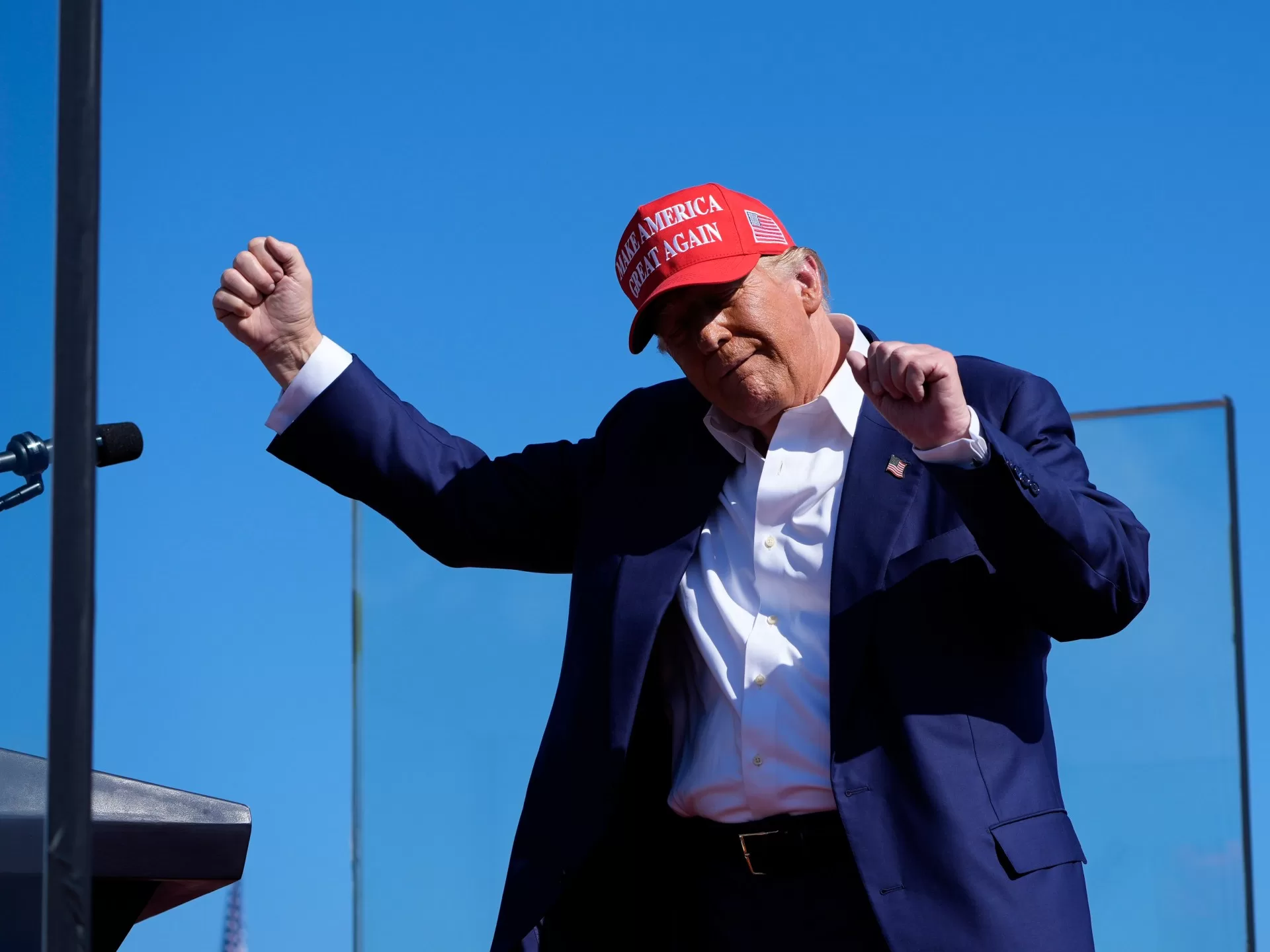Donald Trump has pledged not only to stop US businesses from offshoring jobs, but also to take other countries’ jobs and factories in part through huge tariffs that economists say could actually raise domestic prices.
Among the ideas the former president pitched in Georgia on Tuesday was cutting the corporate tax rate from 21 percent to 15 percent, but only for companies that produce in the United States. His opponent, Vice President Kamala Harris, wants to raise the corporate tax rate to 28 percent. It had been 35 percent when Trump became president in 2017, and he later signed a bill lowering it.
“We’re putting America first,” Trump said. “This new American industrialism will create millions and millions of jobs.”
The former president has pressed Harris on the economy and has proposed using tariffs on imports and other measures to boost US industry, even as economists warn US consumers would bear the costs of tariffs and other Trump proposals like staging the largest deportation operation in US history.
That did not stop Trump from declaring, “If you don’t make your product here, then you will have to pay a tariff, a very substantial tariff, when you send your product to the United States.”
Lack of specifics
Trump has not answered specific questions about his ideas that could change their impact and how much they cost. He has not specified, for example, whether his US-focused corporate tax cuts would apply to companies that assemble their products domestically out of imports.
The former president wants to personally recruit foreign companies and to send members of his administration to do the same. But he had a spotty record in the White House of attracting foreign investment. For example, Trump promised a $10bn investment by Taiwan-based electronics giant Foxconn in Wisconsin, creating potentially 13,000 new jobs, that the company never delivered.
Among the incentives he has proposed is offering foreign companies access to federal land. The Bureau of Land Management has restrictions on foreign entities looking to lease lands. If land remains in federal hands while foreign companies operate on it, those companies could, in theory, be exempt from property tax.
Trump’s campaign did not immediately respond to an inquiry Monday night about whether companies from China would be excluded, given his longtime accusations that China is hurting US business.
And he promised to boost car manufacturing if elected again, saying, “I want German car companies to become American car companies.” BMW, Mercedes and Volkswagen already have major plants in the US, and forcing a larger migration of car manufacturing to the US would take years and likely drive up costs.
Battleground state
The Republican presidential nominee unveiled his plan in Savannah, Georgia, which has one of the busiest ports in the country for cargo shipped in containers.
It is Trump’s first visit to the battleground state stop since a feud between the former president and the Republican Governor Brian Kemp came to an end last month with the popular Georgia governor finally endorsing Trump.
Some Republicans have said they fear Georgia has become more politically competitive in the two months since Vice President Kamala Harris launched her presidential bid after President Joe Biden abandoned his reelection efforts. Harris gave a speech in Atlanta last Friday, calling Trump a threat to women’s freedoms and warning voters he would continue to limit access to abortion if elected president.
Trump’s running mate JD Vance is holding a rally later this week in Georgia, as well as paying a visit to Macon.
Kemp was not in attendance on Tuesday. But before Trump’s remarks, Marjorie Taylor Greene, Republican Representative from Georgia, told the crowd that the former president is a “successful businessman that gave us the best four years of our life”.
Georgia Lieutenant Governor Burt Jones assailed Harris for calling Trump a threat to democracy. Jones served as a fake elector and falsely attested that Trump won the 2020 election that he actually lost to Biden. A special prosecutor, however, declined to move forward with criminal charges against Jones in the matter.
